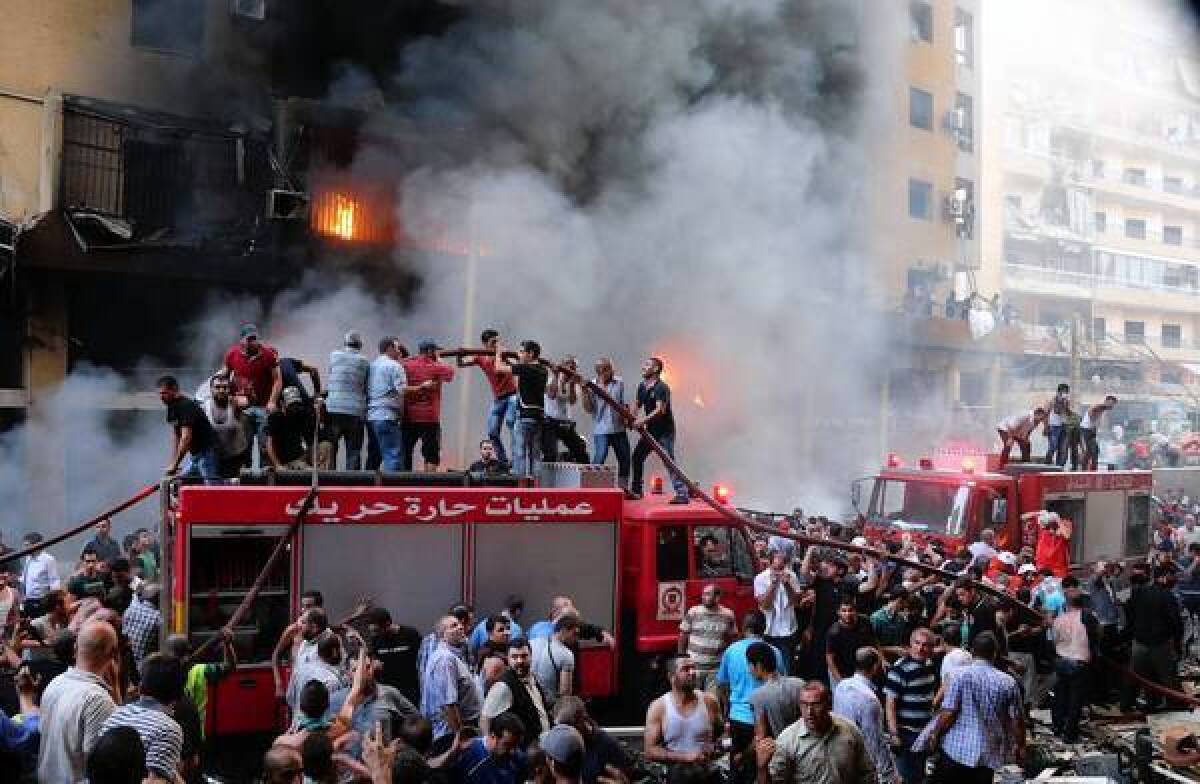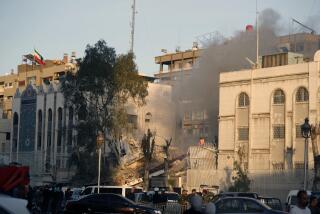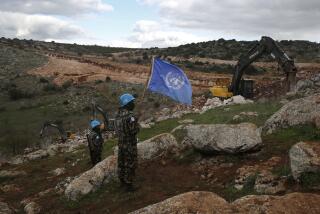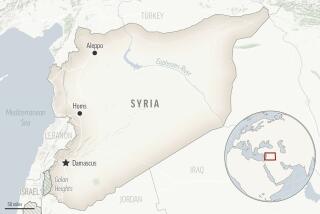Car bomb in Beirut kills at least 18 in Hezbollah stronghold

BEIRUT — A deadly car bomb exploded Thursday in a densely populated district of southern Beirut, a stronghold of the Hezbollah group, fanning new fear of violent fallout in Lebanon from the war raging in neighboring Syria.
The government said at least 18 people were killed and 291 injured in the blast; local news media said the death toll was at least 21.
The attack stunned a nation where many worry that the Syrian conflict could escalate sectarian violence and destabilize an already-shaky government.
The car bombing was the second in two months in southern Beirut, a bastion of Hezbollah, the powerful Islamist political, paramilitary and social service organization. But Thursday’s bomb appeared much to be more powerful and caused many more casualties than the previous attack.
The incident immediately prompted speculation that it was related to the war in Syria. Hezbollah is a major supporter of Syrian President Bashar Assad and has dispatched militiamen to fight on his government’s behalf. Some anti-Assad militants have vowed to strike at Hezbollah in its Lebanese homeland if the Islamist group does not withdraw its fighters.
A group calling itself the Brigades of Aisha the Mother of the Faithful issued a statement on YouTube taking responsibility for the attack and accusing Hezbollah leader Hassan Nasrallah of being “an agent for Iran and Israel.” “We promise him much more,” it said.
Hezbollah is closely allied with Iran but is a sworn enemy of Israel. Hezbollah and Israel fought a monthlong war in 2006.
The war in Syria has severely elevated tension in Lebanon, where a fragile democracy has been in place since its sectarian-fueled civil war ended in 1990. Hezbollah is a Shiite Muslim group. Many Sunni Muslims in Lebanon sympathize with the Sunni-led rebellion in Syria and have assailed Hezbollah’s role in backing Assad.
Officials from across a wide political spectrum denounced the latest bombing, vowing that the attackers would not succeed in sowing sectarian strife.
“The criminal act targets Lebanon as a whole,” Lebanese President Michel Suleiman said in a statement.
The attack, he said, was aimed at “shaking the country’s stability and the Lebanese people’s steadfastness.”
The prime minister’s office declared a period of national mourning Friday. The declaration called for an hourlong cessation of work nationwide and five minutes of silence.
Video from the bombing site showed chaotic scenes of angry and stunned residents gathering as a thick column of smoke rose into the sky. Several cars were engulfed in flames and a number of buildings damaged. Fires raged almost an hour after the blast, which occurred about 6 p.m., a time when many residents would be out on the streets after the heat had abated.
It was not the first time that the area has been targeted. A car bomb early last month injured more than 50 people. A hitherto unknown group calling itself a Syrian rebel brigade claimed responsibility, but law enforcement authorities in Lebanon never publicly authenticated the claim.
After that attack, Hezbollah beefed up security in southern Beirut, a sprawling residential and commercial district with many multistory apartment buildings. But authorities say that screening every vehicle entering the bustling zone is extremely difficult.
The more than two-year war in Syria has repeatedly crossed over into Lebanon. The two nations share a long border and many social, cultural and ethnic ties.
Combatants — and arms — have crossed from Lebanon into Syria, aiding both sides of the conflict. Cross-border shelling strikes have gained frequency. Attacks and kidnappings related to the Syrian conflict have also taken place in Lebanon. Armed clashes between pro- and anti-Assad groups have repeatedly erupted on Lebanese territory.
Last week, a pair of Turkish Airlines pilots were kidnapped on a road near Beirut’s international airport in a case widely seen as linked to the Syrian war. The kidnappers reportedly demanded the release of nine Lebanese hostages being held in rebel-controlled territory in northern Syria, close to the border with Turkey, a major backer of the Syrian rebels. Families of the nine Lebanese have accused Ankara of not doing enough to secure the release of their loved ones in Syria.
Special correspondent Nabih Bulos contributed to this report.
More to Read
Start your day right
Sign up for Essential California for news, features and recommendations from the L.A. Times and beyond in your inbox six days a week.
You may occasionally receive promotional content from the Los Angeles Times.






